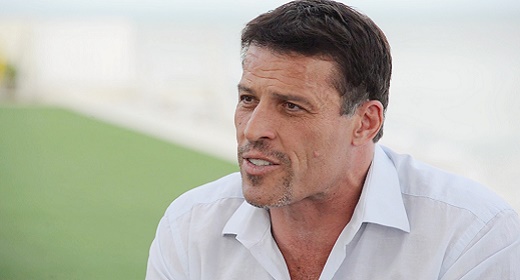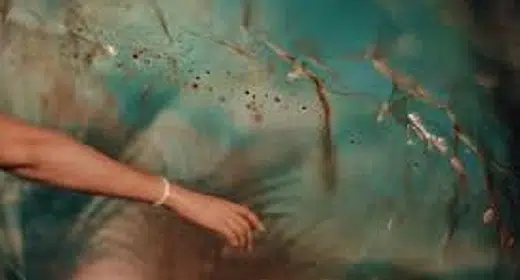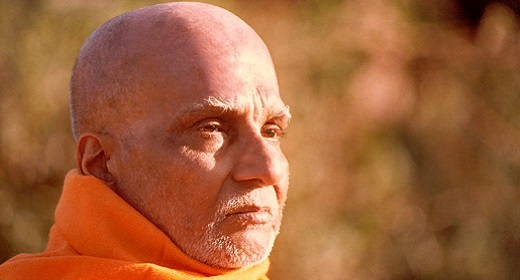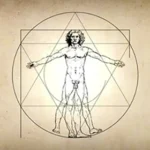by Jeffrey Mishlove PHD: Hello and welcome…
Our topic today is “Healing and the Unconscious.” We’re going to examine the depth, the extent, of the unconscious mind, and the degree to which it influences our physical well-being, our psychological, our spiritual well-being. With me is Dr. Brugh Joy, a medical doctor who for the past fifteen years has been a teacher of beinghood. Dr. Joy is the author of Joy’s Way and a new book called Avalanche: Further Awakening into Beinghood. He conducts conferences at the Feather Mountain Conference Center near Prescott, Arizona. Welcome, Brugh.
W. BRUGH JOY, M.D.: Thank you, Jeffrey. It’s nice to be here.
MISHLOVE: It’s a pleasure to be with you. You know, Freud once likened the mind to an iceberg which had one-tenth above water and nine-tenths of the iceberg below water, or unconscious. You seem to be suggesting that in principle he was in right, but in degree he was wrong — that the unconscious mind is vastly larger than Freud had suggested.
JOY: Oh, you sound a lot like my book.
MISHLOVE: It’s an exciting idea, to think that the subconscious mind might be all that vast, when you consider especially that people initially argued against Freud, that it didn’t exist at all.
JOY: Well, and it’s still argued that it doesn’t exist. I’m really quite struck by the degree to which the unconscious mind is unavailable to us. I’m talking about myself as well as you, as well as everybody else that may be listening to this program.
MISHLOVE: I suppose that’s the definition — unconscious.
JOY: Unconscious. This was what Carl Jung pointed out when he said that the trouble with the unconscious is it’s unconscious. It’s unconscious to us. But the more you sort of probe into consciousness — and I’m not now talking about just the conscious, awake, or aware portion, but I’m using consciousness now in a much vaster context; let’s state it as a far vaster context than just the outer mind — you begin to suspect that maybe the outer mind is like a little dot on a vast ocean of beinghood, is how I usually portray it. And I use these statistics not because I’ve proven them, but to make a point — that the outer mind is 99.999999 percent comatose. It simply does not realize the unconscious forces that dominate or direct the life of the individual. So a lot of my work, when I’m working with people, let’s say, in health and disease, or if they’re into working on deepening their sense of spiritualization or spiritual awakening, or psychic abilities, or whatever — it has to do with first of all introducing them to this realization that who and what they are is far vaster than they know about. It sort of reminds me of being in a television studio where the television camera is only allowed to see so much, and so the audience only sees so much of what this room is actually like. But when you begin to move into deeper ranges of consciousness, you become aware that that’s a limited, controlled view, sort of like the outer mind, and that there’s actually a much larger context in which this whole setting exists, some of which is ego-enhancing, and some of which is not ego-enhancing, and that’s sort of a beginning realization of looking at some of the material in the approach to the unconscious.
MISHLOVE: Well, I suppose, if one were to look at what the mystics say — you know, the yogis suggest that Atman, the deep self, is the same as Brahman, the whole universe. That would suggest, if we were to look into the vastness of outer space and the billions of galaxies that are out there and the forces, the magnetic and gravitational forces, and all of nature, one might think of this truly as also being part of our own unconscious mind.
JOY: Well, now you’re no longer saying yours and mine. You’re now changing the whole definition.
MISHLOVE: Talking about the collective, perhaps.
JOY: You’re now shifting into where we don’t have — at least in the West — we don’t have language structure to be able to state that. And so sometimes when I hear people talking about you create what your life is, and so on, as if the part that they know about had any sort of resource to do that — we’re talking about much richer, much deeper, much more awesome states of consciousness, for which one can no longer use the word mine or yours. We’re talking about a total shift in consciousness. It gets involved with the senses of multiplicity inside that are still, let’s say, still within the range of you as an individual, but there are many more of you than you know about or that I may know about, that still is within your personal sense of beinghood. And those resources then, to me, are interconnected to much larger collective material. Then of course, doing the big leap that you did, just a moment ago, of casting it into the universe, now we’re talking about something that truly our outer minds can’t possibly begin to take on.
MISHLOVE: Well, this is fascinating to me. I think this is one of the areas in which your work has taken on a new vitality, and one might say, if you look at the perennial philosophy of mystics who say, “Oh yes, all is one; we are all one, and I am one, the universe is one,” you’re suggesting something quite different now.
JOY: Well, I am. It’s a redefinition of the human consciousness and the unconscious components of it. I’m very much impressed with some of the material that’s coming out of the National Institute of Mental Health, that’s beginning to talk about multiple personality. My feeling is that the human psyche may well be multiple — that the illusion of self, and I call it an illusion — the illusion of self is what gets us into trouble. We have the sense that we’re a singularity, but I can demonstrate over and over again in working with people that oftentimes maybe two, three, four parts of them are speaking in the same sentence — that you can hear the presence of these parts, but we have sort of a final common pathway, which is called the voice structure or the body movement. So it’s as if people make the assumption that they are in a singularity of beinghood, when indeed it’s easy to demonstrate to people that they have many more beings inside than just one. I used to say, and I still do in my conference work, there are many, many eyes and ears sitting in this room, far more than the number of bodies. You have a number of eyes and ears, I have a number of eyes and ears, and the outer mind may be totally oblivious to their cognitions and their experiences of the same material. But as you begin to find ways to expand, to sort of pull the camera eye back further, or open the iris up, to be able to see more and more of what’s going on, you begin to discover these components and take advantage of them.
MISHLOVE: Now, classically the Freudians, the Jungians, refer to notions such as archetypes, or the ego or the superego — these structures within the subconscious. You’re suggesting something different — beings within.
JOY: I consider them highly circumscribed, and integrated in and of themselves. They have a content and sort of a history, and they stay configurated within that. The idea that subpersonalities are beneath the personal level of the psyche and at the bid and call of the personal level, is an absurdity from my point of view. If anything, the outer level is way down on the totem pole. This is one of the great spiritual realizations one has as one matures
— that the outer level, one’s most personal sense of self, is not numero uno; it’s way down in the totem pole of what I call an internal community. It’s like an internal community. And whether or not this is an exact representation of the human psyche at the unconscious level, it’s a good working hypothesis. It’s a good way to go in and begin to take on these forces which really act quite autonomous, quite independent of who and what we think we are. Particularly, we don’t know that, if we’re living a relatively unconscious life and relatively sort of sleepy, going through life, doing the nice things and the right things and so on. We don’t bump up against it until we come into either major stress in life, or we come up against a life-threatening illness. Then we begin to understand we’re not in charge, we haven’t been in charge, and that there’s something else operating that we have to get in touch with. Along this line. So this is a good opening to beginning to explore and probe these forces that I’m stating are like entities, but not discarnate in the sense that they come from the Pleiades or something like that, or that they come from somebody else who died. I don’t believe that at all. I believe that we’re a rich composite of what I call patternings and forces, and that just as the personality is a pattern of energy, these are patterns of energy also, and some of them are far more resourceful and far richer in their content than is the outer level.
MISHLOVE: The research you mentioned earlier suggests some striking things — that if one personality comes to the fore, allergy patterns may change, or other definite physiological characteristics. Eye coloring might change, things like this, that suggest that these subpersonalities, or autonomous energies, have quite a bit to do with our wellness.
JOY: Well, in my exploration over the years, the most dramatic shifts in illness that I’ve ever encountered were people who underwent a total change in their consciousness. It’s as if they were “born again,” and a whole new being was present. Even though the name and the historical data are still part of the memory bank, there’s an entirely different energetic that you’re dealing with. And of course that material that you just referred to about multiple personality is some startling material, that talks about the consciousness that’s in charge of the body determines the body’s response to stimuli, to whatever. I mean, when they can test one personality and it’s in, and they can come up with diabetes, and it carries a certain patterning, and they test it when another personality is in charge of the psyche, or I call it like an entity, and they don’t find the diabetes, you begin to wonder what is primary — tissue and disease, or is something about consciousness, the profound mystery of being, and consciousness of being; and what is the relationship between mind and matter? All of this is bringing us right to the threshold that a conscious state changes the whole possibility of what a body responds to. So I’ve often thought that some of the more dramatic “feelings” that I’ve ever encountered weren’t because I did something to them per se, to the body tissue, but that some psychological induction took place. It’s as if the pattern or the part of them that was tied up in the conflict, and that which was leading to the disease and participating in the disease patterning died; and something else pops in, and it doesn’t carry that patterning, and the disease dissolves.
MISHLOVE: You mentioned earlier that it’s a big mistake to think that our ego can ever control all of this dynamic.
JOY: Well, who would want it to? It’s so limited in its dimension and its scope and its understanding. I’ve often said to people that you could force a development to go in, and I see some material that disturbs me a lot. Lucid dreaming disturbs me, the teaching of lucid dreaming, because it’s teaching a way for the ego awareness to go in to control something that is far vaster and far richer and in contact with a far vaster reality than we grok at this level. So as I say to people, it’s like the subatomic quark in the molecule and the cell and the hair, the tail of the dog wagging the dog. Who would want a quark wagging the dog? And that’s what the ego is when it goes in.
MISHLOVE: Yet if you’ve got an orchestra of characters inside of you —
JOY: The ego takes its place. This is the key, critical process. This is the key development to the mysteries. This is why the mysteries aren’t brought forward until after thirty-five. There’s that whole process of, “I too am important. I too can contribute to the world. I too can make a meaningful stance. I too can save . . .” and so on and so forth. Those are all part of our earlier stages of development that have to do with development of me and mine, family, service to the self, which is very important in the staging of a human development, and part of beinghood. This is why I use the term beinghood. It is a staging or an aspect of beinghood, but it isn’t its totality. At some point most of us reach a stage, midlife, where we begin to realize that that doesn’t bring us into the fulfillment, that there’s something lacking, and this is where we have to pass through if we’re going to enter, let’s say, mystical paths or spiritual paths. It may take the form then of the surrender of the ego, at which time one then has to be in relationship to something else. Now, I find it very limiting to talk about in relationship to God, or something like that, when indeed there are so many stages before you ever need to evoke such a statement. Interiorly to get to know, to know thyself, is an ancient aphorism over the temple at Delphi, and most people who have orthodox physicians say, “Yes, they ought to get to know themselves,” not realizing, of course, that they don’t know themselves very well either. You know, to know thyself is a profound, profound path, and much of what we’re talking about is not going in to look at somebody else’s material; but what is the journey, what are the struggles, what are the dangers of going into the unconscious? It’s been stated the journey into the unconscious is more dangerous than stripping down naked and walking through the Amazonian jungle. Well, it is. It’s just potentially overwhelming, and unless there is some way to handle the entry — through either centering, or perhaps there’s an intent to look at only a part of the unconscious, such as disease — one can really be overwhelmed and collapse the ego structure, and then we have insanity.
MISHLOVE: Well, I guess there’s a sense in which this needs to be done in stages, it needs to be done carefully. If we’re on a path of growth towards beinghood in this sense, we want to be confronting ourselves, looking at what we might think of as the demonic side, the dark side, the shadow, but never perhaps more than we can handle at any given time.
JOY: Well, you see, this gets us back to multiple dimensions and multiple entities. It depends on which one is in charge of the consciousness when you bring forth the disowned material. If the child’s in charge of the consciousness it’s terrorized, and I can’t tell you how often I have to tell people, “If you bring that child out, I’ll eat it,” because they lose all capacity to hold their center when they’re in a very critical shift in their development. Also it needs to be understood that the shadow content of the unconscious, or the unconscious parts of ourself, when we say demonic, or we say dark, it doesn’t really mean evil. It means that which we do not identify as self. I just recently had a woman whose shadow side was Jesus. She had spent a lifetime fighting and doing battle against Jesus, and she had a dream that totally transformed this for her, so that she went in and suddenly greeted it; she kissed the very thing that she had rejected all of her life, and suddenly found a total transformative experience. Well, that’s an example of somebody going into a disowned material that most other people, certainly in our country, would think, well, why would that be disowned or demonic? And yet you must use the same label; that was demonic to her, relative to her psyche. So it has nothing to do with what the absolute values are of these things; it has to do with relative values, you see.
MISHLOVE: Let me jump back. A moment ago, you said that if somebody you were working with brought their child up, you said you would eat them. What did you mean by that?
JOY: I mean I eat children. I mean if they bring it out, they won’t survive very long. The child cannot come out. In other words, you know, it’s why in the mystery trainings the children are never brought into the temple, they’re never brought into certain arenas. The child has a wonderful place; unfortunately, it’s deified in our society until you wonder whether or not our society will ever get over being a child, and particularly parent-child material, which is deadly. It’s deadly to later stages. It’s great in early stages, where it really doesn’t matter one hoot what you’re involved with, but at later stages it becomes an immense, immense problem. What I find is that we haven’t done the initiations in our culture that closed off these stages, so they’re left wide open, and we run back and forth between these various parts of our psyche, not realizing the consequence of regressing under the impact, let’s say, of a particularly devastating revelation about oneself — something that’s very humiliating, let’s say, as you probe the deep unconscious, and you have to take on the realization. Let’s say you have a feminine part that is almost diametrically opposite of what you perceive yourself as being, and you have to realize that that is you, it exists in you, it has a place in you, and so on and so forth. Usually what happens is that people become overwhelmed under such, and they immediately begin the defense, and then they regress to an earlier stage such as a child. The key is how to hold the development and hold the state of consciousness that can actually entertain the new idea or creative thought, and has resources to engage it and live it and celebrate it and welcome it, rather than saying, “Oh, I don’t want to know about that,” or “Ooooh” — this is what I get in conferences — “ooooh, that terrorizes me.” And you can see the body language change, and so on and so forth, rather than realizing that this is a profound process, and what rites and rituals do we have that teach us how to take on these?
MISHLOVE: Now, if I can paraphrase what you’ve said, you seem to be suggesting that for any given dilemma, for any given predicament the human being finds themselves in, for any given crisis perhaps, that there is within this vast unconscious a particular being, somewhere in the hierarchy of beings within us, which is appropriate to call forth, and that the mystery traditions and some of the esoteric traditions have initiations for calling for at different stages the quality of beinghood which is appropriate to the individual at that time.
JOY: That’s well stated. Exactly. And this is what we lack in our culture, and when we didn’t close the door — I’ve often said it’s a good thing the vagina closes and we can’t get back into it, because people would go clear back into the womb if they could get back into it.
MISHLOVE: Many times I’ve wanted to.
JOY: It’s a very interesting thing, how of all the times when we really would want to hold our development and hold our resources and our richness of being and our life experiences, how fast within an eyeblink these earlier stages can seize us. It’s not only of course for an individual who’s faced with, let’s say, a life-threatening process or an initiation — because that’s what initiations are, they’re life-threatening, life-threatening to earlier stages — but this holds true for collectives, it holds true for nations. Whenever we are stressed out we regress, we become more fundamental, the sabers start rattling about: “Go back to the old ways,” and so on and so forth. All of that is regressive tendency, and very difficult to prevent in a collective sense. The only thing one can do is hold one’s own development. So in times of war, in times of chaos — the worst extreme that I could give you would be somebody who’s trapped in a hotel in a fire, where they regress all the way down to trying to open a locked door, and they die because they have lost all resource, all cognitive function, under the hysteria of trying to open a door. Whereas the mystery training and the later stages — I do believe that in our culture we will develop and bring back the initiations that allow childhood to die, to close off, to induct the next stage. Let me put it this way. In true initiations, there was always a possibility one would not survive them. In other words, they had to be stressed. So there was nothing if everybody just gets moved through, like we do through our educational systems, so it means nothing. Or even some of the wonderful initiations that have been lost in our culture, such as the Bar Mitzvah, such as the Catholic confirmation, which is just sort of social right now, but its real depth has been lost, which was to birth and incarnate an aspect of that individual and close off the previous stage. But this means mother and father have to let them go too, you see, and that isn’t what our culture’s all about. In our culture, we stay children until our parents die.
MISHLOVE: It seems to me that part of the issue that you’re grappling with here is that so much of our learning has to do with conveying information rather than — that as long as we’re just dealing with information we ourselves remain somehow untouched.
JOY: Yes, on so many levels. The emotional level, sexual levels, physical levels are really relatively unfulfilled except in the most superficial sense because we do value the mind and the intellect and cognitive function. In fact we live in these maps thinking they’re real.
MISHLOVE: And we don’t have a good map, I guess, of the various levels of initiation that the human being is capable of proceeding through — not just capable, but which might be expected in the course of a human lifetime.
JOY: Exactly. But I think they will come back. I think they come and they go in the long cycles, and we’re in this time period, I think, where there’s a yearning to return to some of the richness of these initiations, and yearning to touch upon collective forces that help to induct certain states of consciousness, a yearning to belong to something much larger than some of the divisive things that we have contemporarily, that really sort of transcend the differences. Anyway, these are some of my thoughts in and around the area of the unconscious. I realize we’re just touching briefly, and yet powerfully, in these areas. Have you had an experience with the unconscious that you truly would state, this was my experience of discovering the unconscious? It’s often fascinating to me, when I talk to people, whether or not they have — either through dreams, or through vision, or where they truly came into a realization there’s something bigger than they are.
MISHLOVE: Well, I’d love to get into that. We’re just about out of time, so we won’t be able to pursue that further now. But I’d like to begin to wrap things up, I guess, by coming around to a point that I raised earlier, which is that I’ve been very much interested in the great mystical teachings, and many people in our culture are, and the notion of oneness and unity has been very important for me. What I hear you suggesting is that if we look at our lives as sort of progressing through a hierarchy of initiations, that rather than to always reach for the oneness, reach for the unity, we may be wiser or better to look at what is the next stage for us.
JOY: That would be appropriate. I’m also interested in inclusivity, so that we have a sense of community inside, and not just moving on to an abstracted thought of unity. I think there’s a difference between masculine unity and feminine unity, and that most of our spiritual paths, particularly the mystical path, is based on a masculine unity. These are some wonderful things we can get into at another point.
MISHLOVE: Brugh Joy, it’s been a pleasure sharing this half hour with you. We’ve got a lot more to talk about. It’s been a delight to be with you. Thanks for being with me.
JOY: Thank you. Nice to be with you.








































